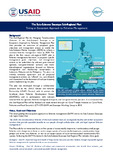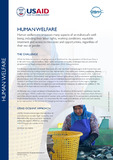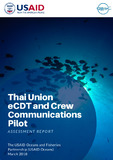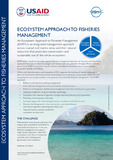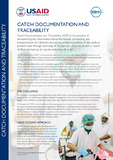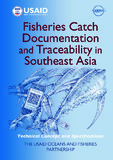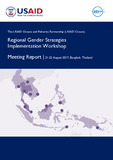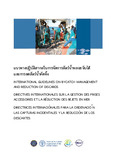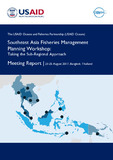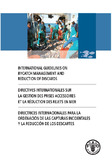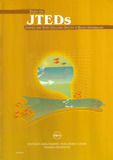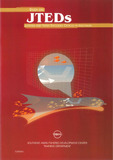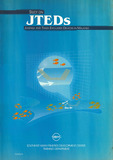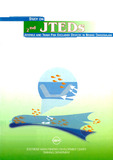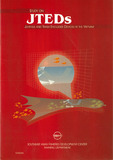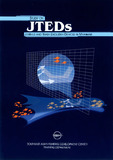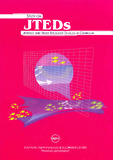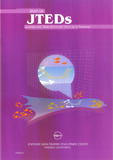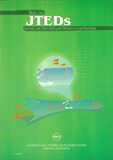SEAFDEC/TD Institutional Repository: Recent submissions
Now showing items 921-940 of 1711
-
Overview of the Sulu-Sulawesi Seascape Sub-Regional Plan: Taking an Ecosystem Approach to Fisheries Management
(-, 2018-09-27)The Sub-Regional Ecosystem Approach to Fisheries Management (EAFM) Plan for Managing Transboundary Fisheries in the Sulu-Sulawesi Seascape has been developed to enable the Sulu-Sulawesi Marine Ecoregion (SSME) to achieve ... -
USAID Oceans Human Welfare Factsheet (Bahasa)
(-, 2018-03-21)Human welfare encompasses many aspects of an individual’s well-being, including their labor rights, working conditions, equitable treatment and access to resources and opportunities, regardless of their sex or gender. -
Thai Union eCDT and Crew Communications Pilot: Assessment Report
(-, 2018-04-17)This report assesses Thai Union’s 2017 pilot program to test the usability and scalability of CDT technology for at-sea data collection and improved crew communications. Thai Union led the pilot, in cooperation with ... -
USAID Oceans EAFM Factsheet
(-, 2018-03-21)An Ecosystem Approach to Fisheries Management (EAFM) is an integrated management approach across coastal and marine areas and their natural resources that promotes conservation and sustainable use of the whole ecosystem. -
USAID Oceans CDT Factsheet
(-, 2018-03-21)Catch Documentation and Traceability (CDT) is the practice of documenting key information about the harvest, processing, and transportation of a fisheries product to enable traceability of the seafood product back through ... -
USAID Oceans Human Welfare Factsheet
(-, 2018-03-21)Human welfare encompasses many aspects of an individual’s well-being, including their labor rights, working conditions, equitable treatment and access to resources and opportunities, regardless of their sex or gender. -
Fisheries Catch Documentation and Traceability in Southeast Asia: Technical Concept and Specifications (CDT 201)
(-, 2017-12-19)The “CDT201″outlines USAID Oceans’ technical approach and specifications to designing, testing, and implementing a CDTS with public and private partners in Southeast Asia. This document follows USAID Oceans’ Fisheries Catch ... -
Workshop Report: Regional Gender Strategies Implementation Workshop
(-, 2017-11-22)The Regional Workshop on Gender Strategies Implementation of the USAID Oceans Fisheries Partnership (USAID Oceans) was held on 21-22 August 2017 at Jasmine City Hotel, Bangkok, Thailand. It was attended by 59 representatives ... -
แนวทางปฏิบัติสากลในการจัดการสัตว์น้ำพลอยจับได้ และการลดสัตว์น้ำคัดทิ้ง
(SEAFDEC, 2011-02)แนวทางปฏิบัติสากลในการจัดการสัตว์น้ำพลอยจับได้และการลดสัตว์น้ำคัดทิ้งที่ได้รับการพัฒนาโดยกระบวนการมีส่วนร่วม ที่ประกอบด้วยผู้เชี่ยวชาญการประมง นักจัดการประมงจากภาครัฐ อุตสาหกรรมประมง สถาบันการศึกษา องค์กรเอกชน และองค์การ ... -
Workshop Report: Southeast Asia Fisheries Management Planning Workshop
(2017-11-22)The Southeast Asia Fisheries Management Planning Workshop: Taking the Sub-Regional Approach was successfully conducted by the Oceans and Fisheries Partnership (USAID Oceans) and the Southeast Asian Fisheries Development ... -
International Guidelines on By catch Management and Reduction of Discards
(FAO, 2011-02)These International Guidelines on Bycatch Management and Reduction of Discards were developed through a participatory process involving fisheries experts, fishery managers from governments, the fishing industry, academia ... -
Study on Juvenile and Trash Excluder Devices (JTEDs) in Brunei Darussalam
(Training Department, Southeast Asian Fisheries Development Center, 2003)SEAFDEC Training Department, in cooperation with the Brunei Darussalam Department of Fisheries conducted experiments on Juvenile and Trash Excluder Devices (JTEDs) during the year 2000 in Brunei Darussalam waters. The ... -
Study on Juvenile and Trash Excluder Devices (JTEDs) in Indonesia
(Training Department, Southeast Asian Fisheries Development Center, 2003)The experiment was conducted during August 2002 in the Bintuni Bay, Arafura Sea of East Indonesia using the commercial double-rigged trawler in order to examine the releasing ability of Juvenile and Trash Excluder Devices ... -
Study on Juvenile and Trash Excluder Devices (JTEDs) in Malaysia
(Training Department, Southeast Asian Fisheries Development Center, 2002)This paper describes the results of the juvenile and trash fishes excluder device tests conducted aboard a Malaysian Fishing Trawler in cooperation with the Department of Fisheries, Malaysia. In particular, it provides ... -
Study on Juvenile and Trash Excluder Devices (JTEDs) in Brunei Darussalam
(Training Department, Southeast Asian Fisheries Development Center, 2005)The SEAFDEC Training Department, in cooperation with the Department of Fisheries, Brunei Darussalam, conducted the second series of experiments on Juvenile and Trash Excluder Devices in Brunei Darussalam. The objective ... -
Study on Juvenile and Trash Excluder Devices (JTEDs) in Vietnam
(Training Department, Southeast Asian Fisheries Development Center, 2003)This SEAFDEC Training Department has carried out series of experiments to reduce the level of unwanted catch including juvenile and trash fish. SEAFDEC planned to conduct the experiments using JTEDs installed in bottom ... -
Study on Juvenile and Trash Excluder Devices (JTEDs) in Myanmar
(Training Department, Southeast Asian Fisheries Development Center, 2007)The SEAFDEC Training Department, in cooperation with the Department of Fisheries, Myanmar conducted experiments on Juvenile and Trash Excluder Devices in Myanmar. The objective of the experiment is to compare the efficiency ... -
Study on Juvenile and Trash Excluder Devices (JTEDs) in Cambodia
(Training Department, Southeast Asian Fisheries Development Center, 2007)The experiment was conducted during October 2004 in the Sihanoukville, Cambodia using the commercial trawler in order to examine the releasing ability of Juvenile and Trash Excluder Devices (JTEDs) in bottom trawl. This ... -
Study on Juvenile and Trash Excluder Devices (JTEDs) in Thailand
(Training Department, Southeast Asian Fisheries Development Center, 2000-06)SEAFDEC Training Department, in cooperation with the Thai Department of Fisheries has initially conducted the experiments on Juvenile and Trash Excluder Device (JTED) since 1998 in Thailand. The objective being to study ... -
Study on Juvenile and Trash Excluder Devices (JTEDs) in the Philippines
(Training Department, Southeast Asian Fisheries Development Center, 2003)Trawling is a highly efficient fishing method for catching shrimp and is used in many regions. The Southeast Asian region is in the tropical zone and is a multi species area and the fishermen, who operate shrimp trawls, ...

